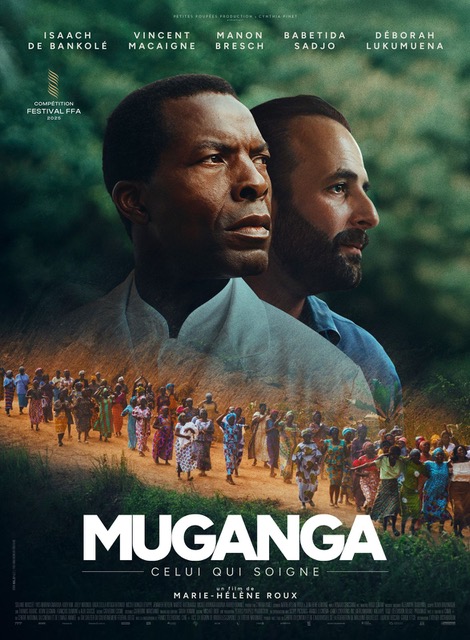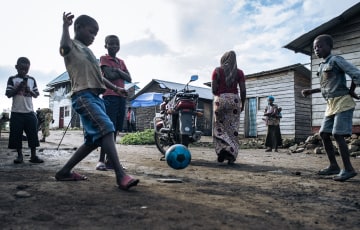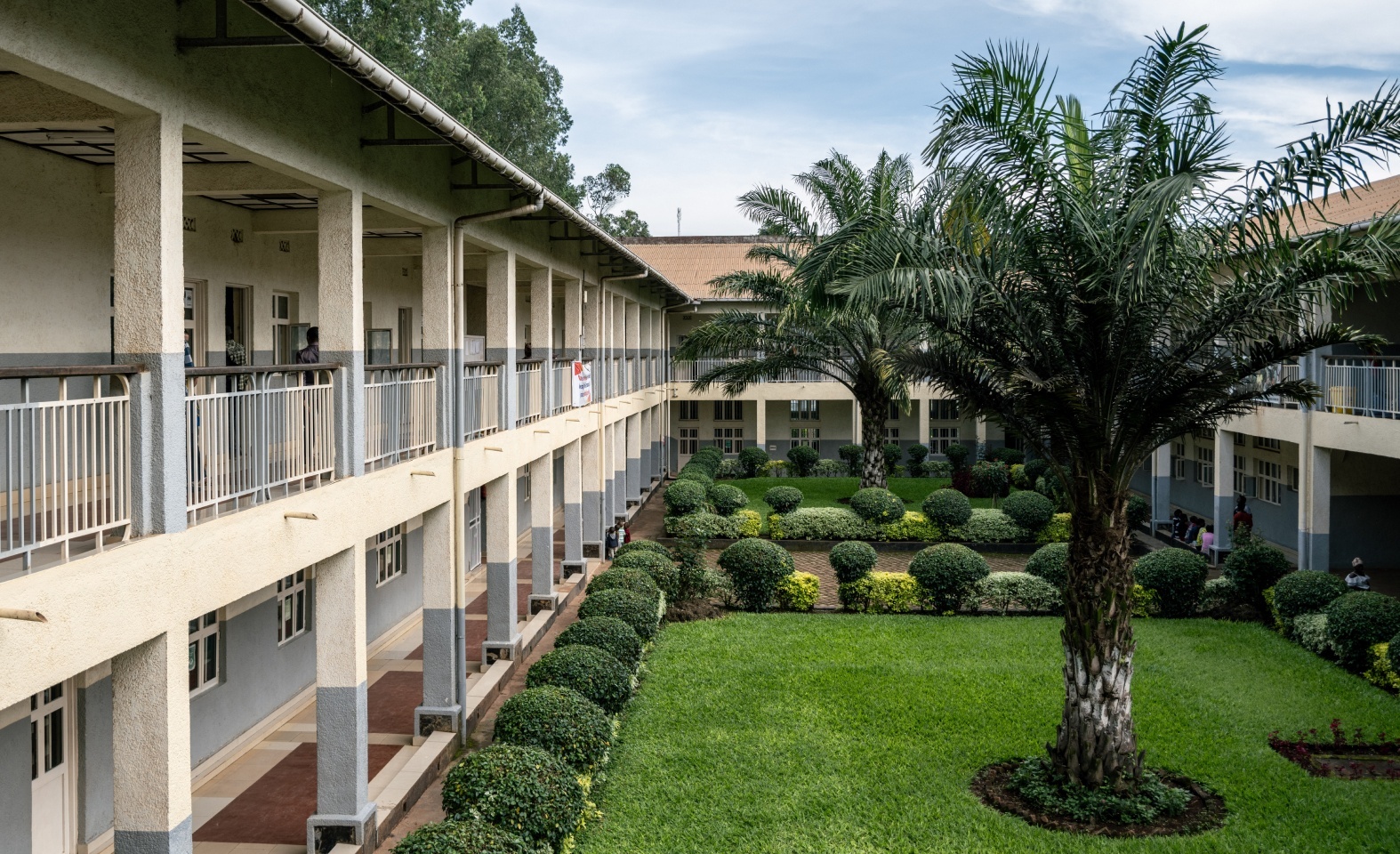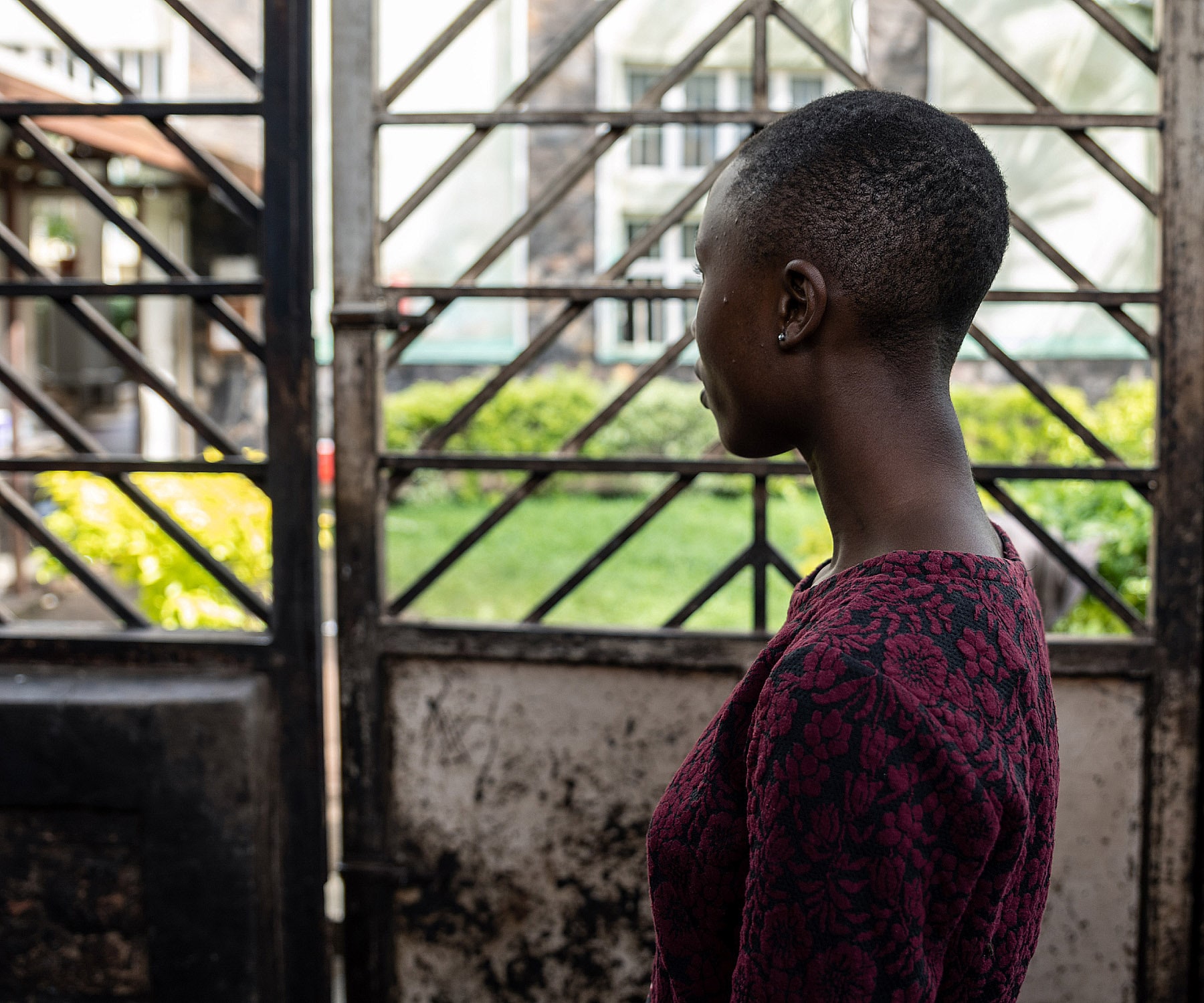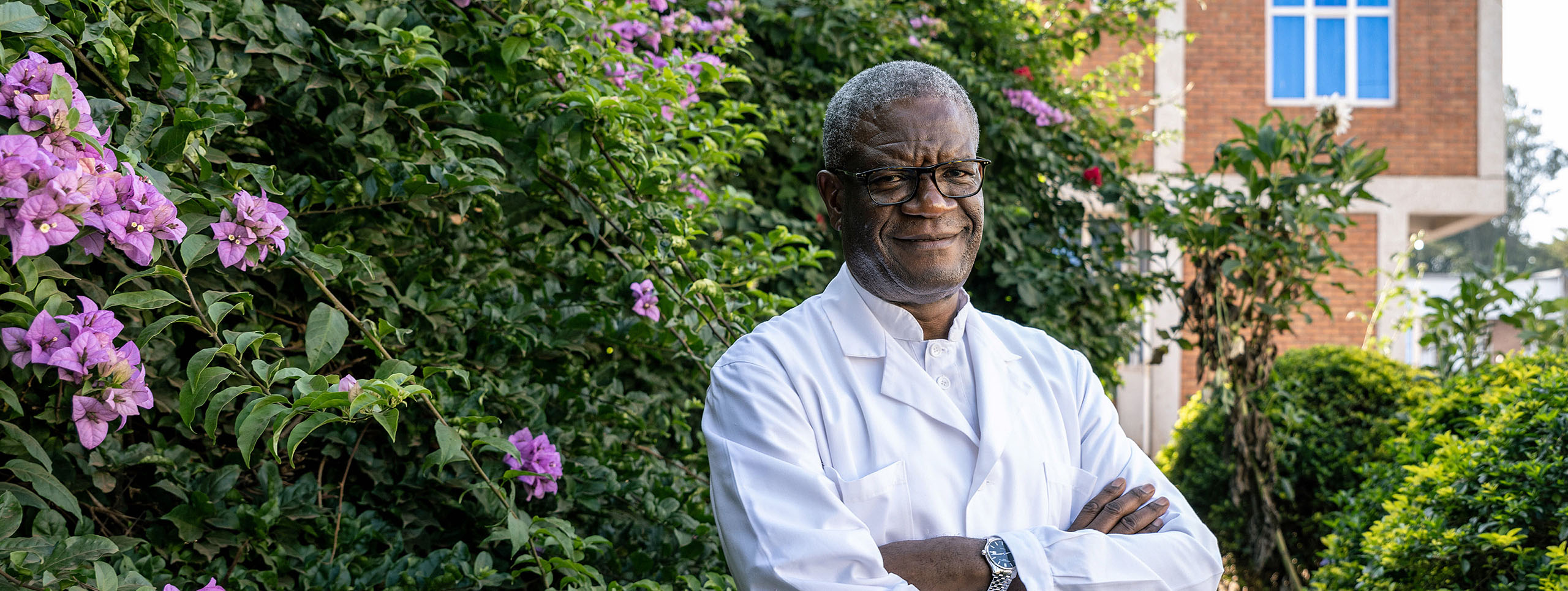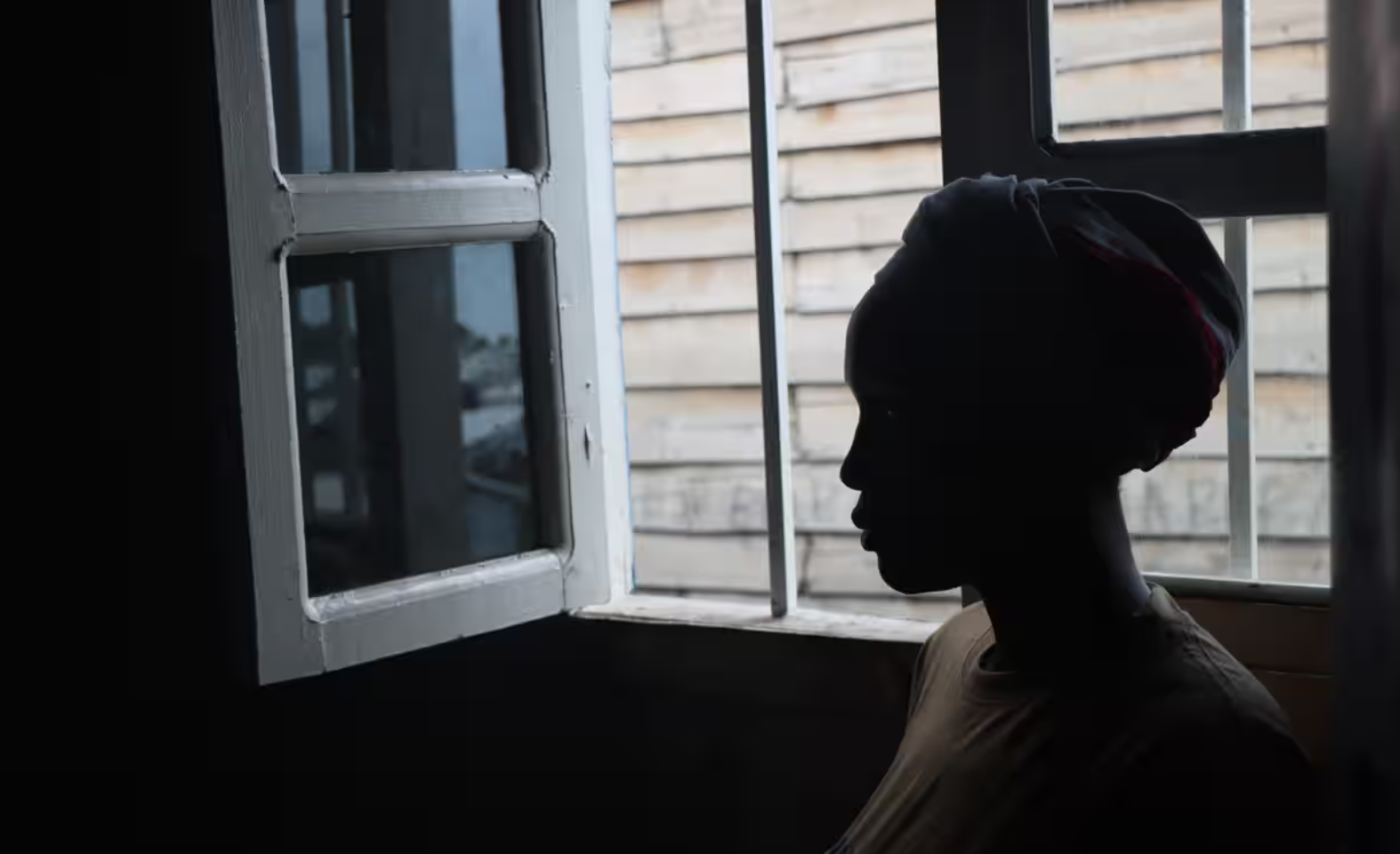Bukavu July 17, 2020 — Statement by Dr. Denis Mukwege on the International Justice Day
Today we recognize International Justice Day, which commemorates the adoption of the Rome Statute of the International Criminal Court (ICC). Our thoughts are with all the victims of atrocities, all those in who seek justice, and all those who are fighting to defend their rights and against impunity.
International Justice Day is meaningful for survivors who have experienced sexual violence in conflicts around the globe, as justice is essential for all those who have been victims of violence and abuse. Indeed, when we ask survivors of sexual violence about their greatest aspirations, many express their desire that to receive justice.
In addition, justice is a crucial step on the path to healing for survivors and their reintegration into the community and society, because it makes it possible to recognize the evil which has been inflicted upon them. It also transfers that burden and shame from the shoulders of the victims to those of perpetrators.
Yet wartime sexual violence has been an invisible and overlooked crime throughout history. It is often considered to be inevitable collateral damage from war and is largely absent from both domestic and international criminal prosecutions. For too long, impunity for perpetrators of rape and other conflict-related forms of sexual violence has been the rule rather than the exception.
The statutes and case law of the ad hoc international criminal tribunals in Rwanda and the former Yugoslavia have led to major advances towards the recognition of rape and other forms of sexual assault as war crimes and crimes against l humanity. In particular, the Akayesu case represents a historic precedent in international criminal justice, recognizing that rape can be a component of the crime of genocide.
On July 17, 1998, the Rome Statute of the International Criminal Court codified rape and other acts of sexual violence as part of the most serious crimes affecting the entire international community.
As the voices of survivors are freed and more and more break the silence – this absolute weapon of the perpetrators – the normative and institutional framework which has evolved in recent decades has not yet resulted in many condemnations at the international level. It has yet to change the paradigm of impunity which still prevails widely over sexual crimes.
Despite recent developments in international criminal jurisprudence on sexual and gender-based violence, including the Ntanganda case (which led to an ICC conviction on the basis of crimes of sexual violence), very few survivors have access to international criminal justice, which remains mainly centered on the perpetrators.
Future legislative reforms, both international and domestic, will need to focus more on gender-specific investigation procedures, which will increase the frequency of rape charges and obtain more successful prosecutions, both in conflict and in peacetime.
This International Justice Day is also very meaningful for the Congolese people.
Since the early 1990s, the Democratic Republic of the Congo (DRC) has been plagued by a multitude of regional and internal conflicts. Cycles of violence that have caused millions of deaths and displaced entire communities, and resulted in hundreds of thousands of rapes.
These mass atrocities were mostly committed in a climate of generalized impunity: justice was sacrificed on the altar of peace by short-term political agreements and today, the Congolese people have neither peace nor justice.
Exactly 10 years ago, the Office of the United Nations High Commissioner for Human Rights published the Mapping Report which documents the most serious violations of human rights and international humanitarian law committed in the territory of the Democratic Republic Congo (DRC) between March 1993 and June 2003.
This report established an inventory of 617 war crimes and crimes against humanity. If brought before a competent court, some of the atrocities documented in the Mapping Report could constitute the crime of genocide.
To date, none of the recommendations contained in this report have been implemented. As the ICC only hast jurisdiction for crimes committed after July 2002 and given the regional dimension of the conflict in the DRC (where various foreign armies and rebel groups have intervened and must also be held accountable) we are taking advantage of this International Justice Day to urge the Congolese authorities and the international community to create an International Tribunal for the DRC and/or mixed chambers which can be competent from the early 1990s to the present day.
We also call for support for the establishment of truth-finding mechanisms, reparation programs and far-reaching reforms of the security and justice sectors in the DRC.
The time has come to unearth the Mapping Report and to implement its recommendations—the victims of yesterday and today have the right to justice, to the truth, to reparation, and to guarantees that these mass atrocities will not be repeated. This should not leave anyone indifferent and must prompt strong action from both the Congolese authorities and the international community.
Thus, we will not only pay tribute to the many victims and survivors of the most serious crimes in their quest for justice, but we will also contribute to the establishment of lasting peace in the African Great Lakes region and to the advent of a more dignified and just world.
Dr. Denis Mukwege
2018 Nobel Peace Prize Laureate
